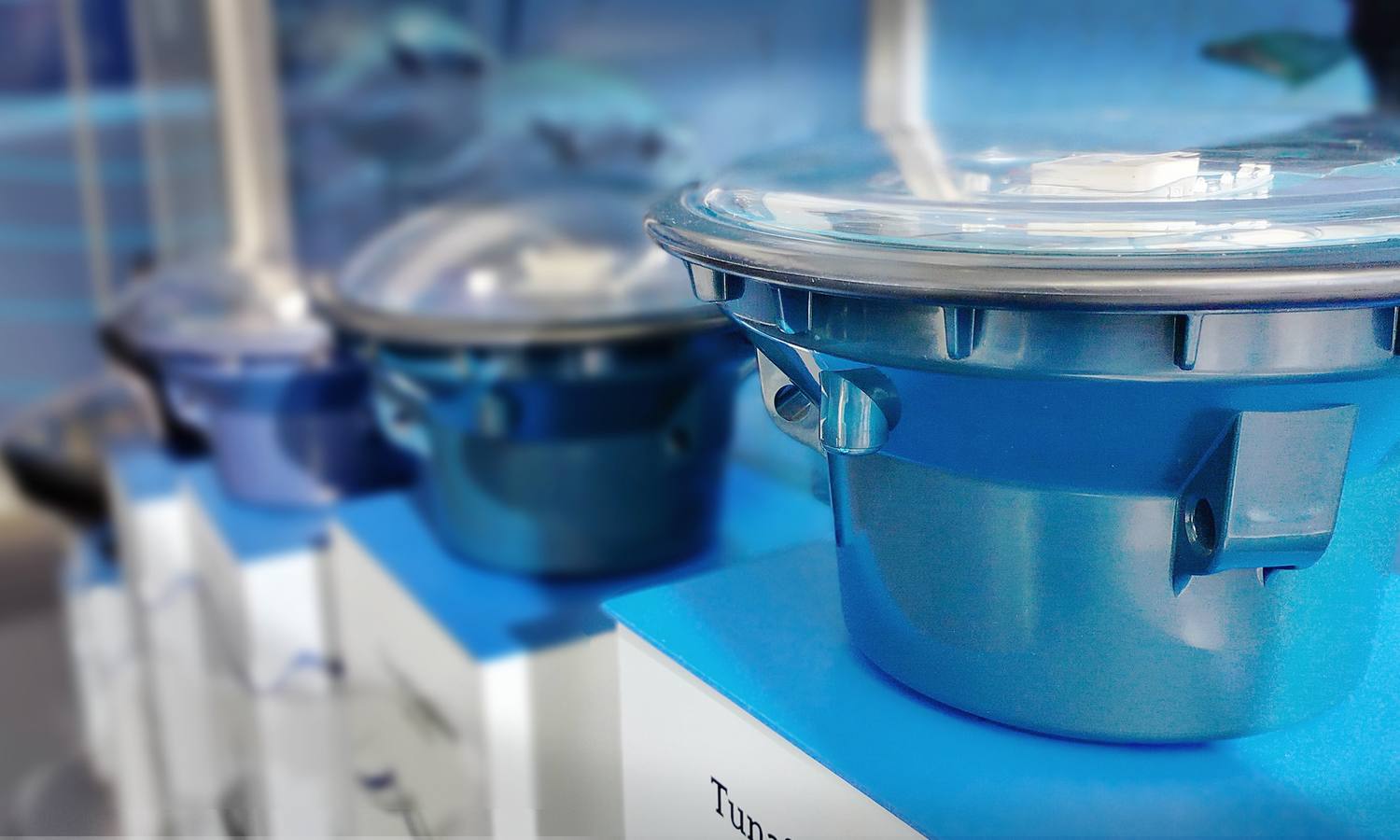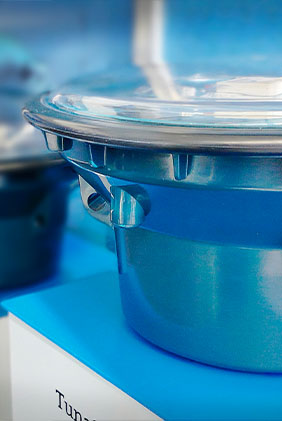ZUNIBAL «We’re working for the sustainability of seas and oceans applying advanced technologies to implement responsible fishing practices»

Ángel Martínez
Zunibal Sales Director
ZUNIBAL
Zunibal, a Basque technological company dedicated to marine technological solutions, specialised in the manufacture of buoys equipped with echo sounder and satellite communication for more sustainable and efficient tuna fishing. Novel systems enabling tuna fishing vessels to estimate the number of tuna extant in a specific point in the sea prior to casting the net, since their AI tools enable them to discriminate the target species and know which areas concentrate the largest number of tuna.
The technological company states: “At Zunibal we’re working for the sustainability of seas and oceans applying advanced technologies in the tuna fishing sector to implement sustainable responsible fishing practices. We design and manufacture fishing monitoring and detection systems which reduce impact on the marine environment while improving fishing efficiency. Indeed, the resilience of our system is essential to meet the demands of the marine ecosystem, like our tuna fishing buoys Tuna8 Explorer & Tuna8 Xtreme, which withstand the inclemency of the highly demanding marine environment; and our ZuniSea Controllers, which are capable of maintaining communication under adverse conditions plus ensuring the reliability of data dispatch and reception.”
In fact, satellite buoys and management software are the most efficient fishing gear contributing to 3 stages of sustainability: economic and environmental due to fuel consumption efficiency while fishing; also environmental since by-catch rates are very low in comparison to other fishing gears; and last but not least, its important social contribution since tuna is the main source of protein in many areas worldwide, plus this industry generates thousands of jobs.
«Diseñamos y fabricamos sistemas de seguimiento y detección de pesca que reducen el impacto en el medio marino y mejoran la eficiencia de la actividad pesquera»
How is technology contributing to sustainability in fishing?
Technology has had a significant impact on fishing sustainability in recent years. For example, our advanced fishing monitoring and tracking systems can obtain real time data on vessel location and biomass detected, thereby enabling more responsible management of resources coupled with a reduction in environmental impact while at the same time improving the tonnage ratio per nautical mile. Furthermore, our investment in AI and machine learning with their implementation in our devices and software have increased fishing efficiency and sustainability.
What are Zunibal’s main technological solutions for tuna fishing?

Thanks to the fishing algorithm we’ve developed after an enormous collection of data over the years, we’ve incorporated AI in our management software so it can indicate whether the biomass detected is tuna. In addition, the ZuniSea (our controller) has different types of configurable maps called Fortuna Charts to know aspects like: temperature, amount of plankton, wave conditions, salinity, winds, currents, dissolved oxygen, etc. On analysing all these oceanographic variables, our machine-learning based model is able to determine the best ocean areas, so with this information our customers can make the best decisions regarding where to fish or where to cast the net, not only on the buoy but also on a free bank, thus making fishing even more efficient.
Do these tools also serve to discriminate among the different tuna species? Is this the future commitment for the tuna fishing sector?
At Zunibal we’ve always focused our developments on fostering responsible fishing practices like reducing accidental catches, which is one of the major demands of the sector. Hence the reason for developing the triple frequency buoy with sonicated transducers that sound in the same volume, enabling comparison of information from the different frequencies, and as such determining the type of tuna below the FAD thereby reducing by-catches. Thanks to this cutting-edge technology, we minimize the environmental impact of tuna fishing, as it will enable identification and selection of species to be caught thus reducing the mortality of other species, preserving marine biodiversity. This buoy is the result of many years of research, where our team of technicians and acousticians have been on board the vessels working with the 3 scientific frequencies, collecting, analysing and contrasting our data with the large amount of scientific information.
What other projects are you working on in favour of sustainability?
At Zunibal we work with important companies, organisation and players in the fishing sector and the preservation of oceans. In particular, we’ve worked with the Maritime Rescue Organisation to help locate shipwreck victims with ZuniSOS, our emergency buoy, which can also track oil spills for their correct elimination. Furthermore, we also collaborate with other non-profit associations like: BBK Kuna, a social innovation space with the participation of various agents tied to the SDGs; PTEPA, which fosters technological and innovation development in the fishing sector and in aquaculture; and Bermeo Tuna World Capital, which globally fosters sustainable management revolving around tuna as a natural resource via scientific knowledge and good practices leadership.
Colaborar con los Objetivos de Desarrollo Sostenible
Our major challenge has become our philosophy in recent years, i.e. committing to collaborate with the Sustainable Development Goals (SDG), with special focus on no. 14, namely to conserve and sustainably use the oceans, seas and marine resources for sustainable development. Moreover, commitment to Artificial Intelligence goes hand-in-hand with sustainability with regard to our field. Our technology aims to reduce contamination of oceans and impact on marine ecosystems. Another of our aims is to create jobs in countries like Senegal and Ghana, for example, thanks to our circular economy programme, where we seek not only to recycle and foster responsible consumption to generate the minimum impact possible but also to create employment in underprivileged areas.




